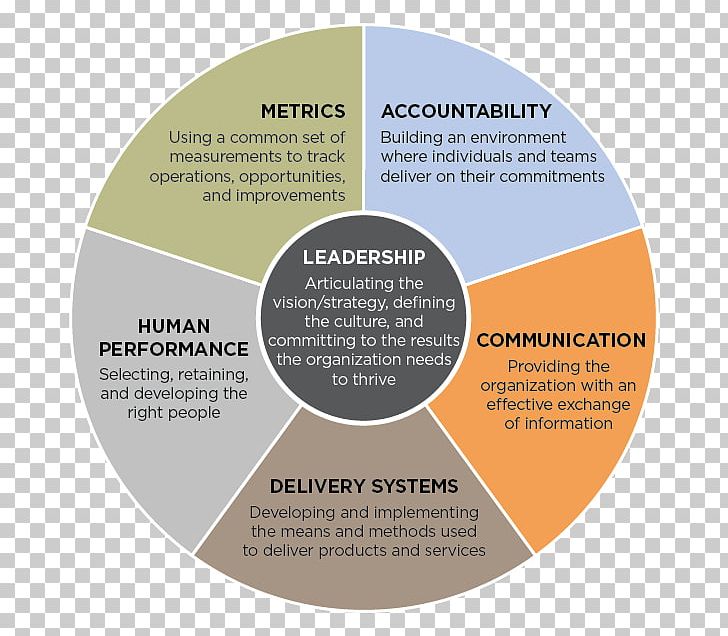Middle Management: Their Crucial Role In Organizational Effectiveness And Employee Development

Table of Contents
Bridging the Gap: Middle Management as the Communication Hub
Middle managers act as the vital communication link between upper management and frontline employees. They translate strategic directives into actionable plans, ensuring everyone understands the organization's goals and how their individual contributions contribute to the bigger picture. Clear and consistent communication is essential for organizational success; without it, projects stall, misunderstandings arise, and morale suffers. Middle managers are responsible for ensuring a smooth and transparent flow of information in both directions.
Potential communication barriers include: information overload, conflicting priorities, and lack of trust. Effective middle managers overcome these challenges by:
- Utilizing diverse communication channels: Employing a mix of emails, meetings, team huddles, and informal communication fosters inclusivity and ensures messages reach everyone effectively.
- Practicing active listening: Truly hearing employee concerns and feedback builds trust and allows middle managers to address issues promptly.
- Providing regular updates: Keeping teams informed about organizational progress, challenges, and changes prevents speculation and maintains transparency.
Fostering a High-Performing Team: The Role of Middle Management in Team Development
Building and motivating high-performing teams is a cornerstone of middle management's responsibilities. They create a positive and productive environment by fostering collaboration, encouraging innovation, and recognizing individual contributions. This involves:
- Effective Delegation: Assigning tasks based on team members' skills and strengths empowers individuals and builds confidence.
- Mentoring and Coaching: Providing guidance and support helps employees develop their skills and reach their full potential, boosting team morale and performance.
- Regular Feedback: Offering constructive criticism and celebrating successes keeps team members engaged and focused on improvement.
- Creating Opportunities for Collaboration: Encouraging teamwork and shared problem-solving strengthens relationships and fosters innovation.
The impact of effective team leadership is profound, leading to increased employee engagement, improved productivity, and higher morale—all vital components of organizational effectiveness.
Driving Performance and Achieving Objectives: Middle Management's Contribution to Organizational Effectiveness
Middle managers directly contribute to the achievement of organizational goals by translating strategic plans into actionable team objectives. This requires effective performance management and goal setting:
- Setting Clear Expectations: Establishing measurable goals and providing clear guidelines ensures everyone is working towards the same objectives.
- Monitoring Progress and Identifying Obstacles: Regular check-ins and performance reviews allow middle managers to identify roadblocks and implement timely corrective actions.
- Resource Allocation: Effectively managing resources ensures teams have what they need to succeed.
- Performance Reviews: These provide opportunities for both feedback and goal refinement.
By skillfully navigating these responsibilities, middle managers ensure teams remain focused, productive, and aligned with overall strategic planning.
Cultivating Talent: The Crucial Role of Middle Management in Employee Development
Investing in employee development is a strategic imperative, and middle managers are on the front lines of this crucial process. They identify talent within their teams and create opportunities for growth through:
- Mentorship Programs: Pairing experienced employees with those seeking development fosters skill transfer and accelerates career progression.
- Training Opportunities: Providing access to relevant training programs enhances skills and expands employees' capabilities.
- Performance Improvement Plans: Addressing performance gaps constructively helps employees improve their skills and reach their potential.
- Promotion Opportunities: Recognizing and rewarding high-performing employees motivates the team and promotes internal talent mobility.
Investing in employee development benefits both the individual and the organization by creating a more skilled, engaged, and motivated workforce, contributing significantly to long-term organizational success and succession planning.
Empowering Middle Management for Enhanced Organizational Outcomes
In conclusion, middle management's role in organizational effectiveness and employee development is undeniable. They are the linchpin connecting strategy with execution, fostering collaboration, driving performance, and cultivating talent. Investing in middle management—through training, development, and empowering leadership—is not just an expense; it's a strategic investment that unlocks the full potential of your organization and fosters a thriving employee development culture. Invest in your middle management today to unlock the full potential of your organization and foster a thriving employee development culture. Discover more effective strategies for supporting your middle management team and enhancing overall organizational effectiveness.

Featured Posts
-
 Mackenzie Mc Kees Pregnancy Reveal Partner Khesanio Hall
May 11, 2025
Mackenzie Mc Kees Pregnancy Reveal Partner Khesanio Hall
May 11, 2025 -
 Eric Antoine Et Sa Nouvelle Compagne Une Relation Officielle Apres Son Divorce
May 11, 2025
Eric Antoine Et Sa Nouvelle Compagne Une Relation Officielle Apres Son Divorce
May 11, 2025 -
 Analyzing The Expansion Of Canadas Top Natural Gas Producer
May 11, 2025
Analyzing The Expansion Of Canadas Top Natural Gas Producer
May 11, 2025 -
 Source 2025 New York Yankees Hats Jerseys And Official Merchandise
May 11, 2025
Source 2025 New York Yankees Hats Jerseys And Official Merchandise
May 11, 2025 -
 Easy Dividend Investing The Path To Profitability
May 11, 2025
Easy Dividend Investing The Path To Profitability
May 11, 2025
